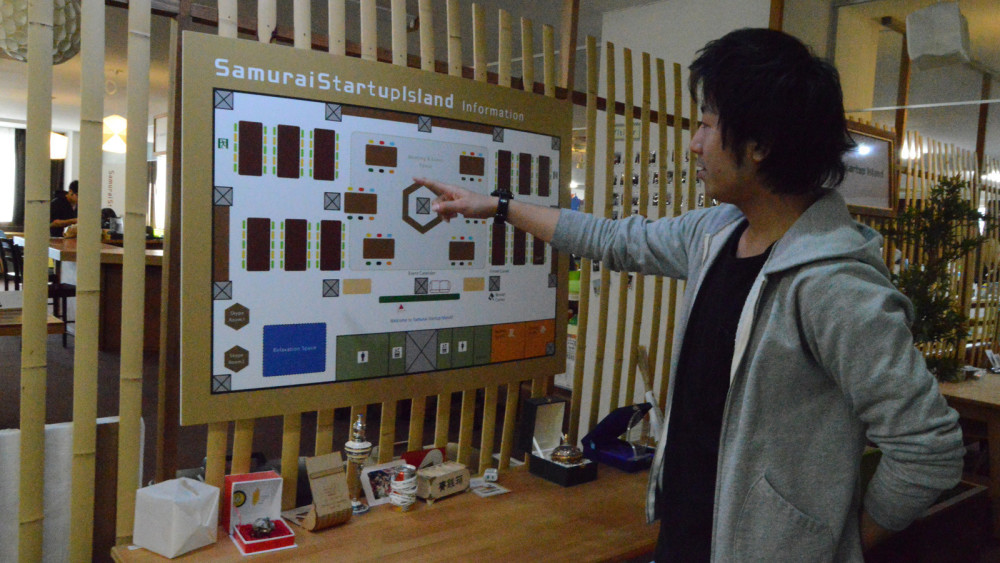By Jacqueline Lee
Palo Alto Daily News, Calif.
PALO ALTO
Japanese entrepreneur Yuka Meguro came to Silicon Valley this month with one pitch — a smart ring with biometric sensors — and returned home with another big idea — perfecting biometric technology for gun safety.
Meguro’s business pivot illustrates the catalyst behind the new start-up boot camp offered by the Japanese government through a partnership with the World Innovation Lab, which has offices in Palo Alto and Tokyo.
The 20 participants of the boot camp Shido, which means “starting something new” in Japanese, visited Silicon Valley for two weeks to meet with mentors and venture capitalists.
During that time, Meguro and others got feedback on ideas and learned how to shape business pitches to their respective companies in Japan.
Shido is the brainchild of the “Innovation Kakehashi Project” spearheaded by Japan’s Ministry of Economy, Trade and Industry.
Japan Prime Minister Shinzo Abe announced the project, which aims to build a bridge between Japan and Silicon Valley for economic growth based on innovation, during a visit to Stanford University in April.
Japan has more Stanford alumni than any other Asian country, university officials said.
Abe spoke at Stanford about the slow pace of innovation in Japan, and how the country’s technology sector must evolve faster and venture into the global marketplace.
“We have to catch up or otherwise Japan will lose vitality,” Abe said.
Japan has many small- and medium-sized enterprises that cannot break out of local markets even with the technology to do so, Abe added.
Meguro’s idea for a gun safe that can only be unlocked by an owner’s fingerprint, although not novel, is one idea that surfaced through Shido and has appeal in America.
Meguro said she and a mentor were brainstorming for a new idea after an early street poll showed consumers balked at the cost of a smart ring.
Meguro sought feedback through about 100 interviews from potential consumers with whom she shared the idea of a smart ring that can be used in lieu of credit cards, work security badges, train passes and more.
Her mentor encouraged her to identify a problem she wants to solve and find a way to incorporate biometric technology into the solution instead of finding a market for an existing product.
“When I learned of the gun safety issue in the United States, I realized the technology can be applicable to prevent future harm to children,” Meguro said through a translator.
While protecting children from guns at home is a top concern in the United States, the safety issue is not common in Japan because private gun ownership is rare, Meguro said.
Meguro’s idea would help Japan enter the growing U.S. market for safety technology, which includes smart gun systems.
“I’ve always wanted to create a product that will improve people’s lives,” Meguro said.
Meguro, a business strategist on non-consumer integration for NEC, plans to pitch the idea this month to the information technology and electronics company upon her return to Japan.
Naoko Okumoto, a Shido mentor, said organizers want participants to walk away with a good sense of what it takes to succeed in the tech start-up environment.
But another goal of the program is to help foster start-up culture within corporate culture, said Okumoto, a partner at WiL and a former vice president of Yahoo! Japan.
Japan risks losing ground on innovative growth as more young entrepreneurs there strive to work in corporations, where creativity sometimes suffers, Okumoto said.
In recent decades, Japan has focused on creating innovative products for its own citizens, but the prime minister’s goals mark a renewed effort for Japan to think global, Okumoto said.
The “Abenomics” of Japan’s top leader is based on a three-pronged strategy of financial stimulus, economic reform and more government spending. The goal is to grow the gross domestic product by 20 percent, up to 600 trillion yen, by 2020.
Yasuko Chigira, who works in Toshiba’s research and development division, sees common ground in the strong performing nail care industry in Japan, the U.S. and other markets.
Chigira wants to embed secure silicon chips in artificial nails that are disposable after a few weeks, like contact lenses. The nail can be painted over with polish or other nail art.
The chip technology in the nail would sync with the wearer’s phone and eliminate the need to carry access cards for the subway or vending machines popular in Japan, Chigira said.
Other Shido entrepreneurs had project ideas in mind for faraway places, from California to Africa.
One participant is researching a substance that would help soil retain water and another is working to improve the preservation of donor organs during transportation.
Shido participants are picked from a group of about 120 businessmen and women who took part in a three-month program in Tokyo.
The finalists represent a variety of companies like Toyota and Daiwa Securities Group, and the group had access to about 50 mentors from World Innovation Lab and Silicon Valley companies.
Program organizers intended to choose participants who had company resources to make ideas materialize.
The Shido group also participated in “Moment 2015,” the first ever U.S.-Japan Venture Capital Conference, at the end of October at Stanford University.
The event drew about 400 participants, with more than half coming from Japan.
The boot camp culminated Nov. 6 in Palo Alto with each of the entrepreneurs participating in three-minute presentations and peer reviews.














































































































































































































































































































































































